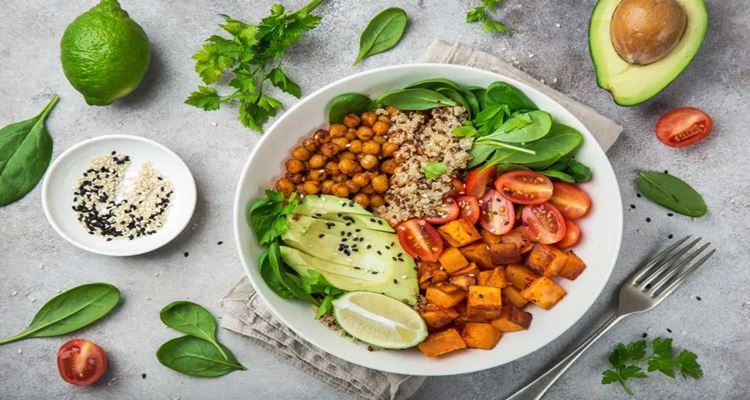What is the right PCOS diet? What should you eat if you have this condition?
PCOS DIET – Polycystic ovary syndrome (PCOS) affects lots of women and is the leading cause of infertility but here are some ways to manage symptoms.
The acronym PCOS stands for polycystic ovary syndrome which is a disorder that affects people who are assigned females at birth. It is believed that it is inherited genetically but there’s little research about this information and the exact causes of this hormonal disorder.

Its symptoms are:
- Irregular or missed periods
- Fertility struggles
- Unwanted hair growth on face and body
- Hair loss
- Oily, Acne-prone skin
- Changes in skin pigment
- Frequent mood changes
- Pelvic pain
- Weight gain, specifically around the midsection
Although frustrating, there are still some ways that can manage your symptoms and reverse possible problems that may arise. Most females who have this can still live a normal and healthy life through some treatments provided by a healthcare provider and some lifestyle changes which include improving their diet.
What are the basics of a PCOS diet? Here are some to note:
- A high-quality, high-fiber carbohydrate food is great for stabilizing your blood sugar levels.
- A balanced diet can lead to less insulin in the bloodstream, decrease androgen production, and alleviate other symptoms.
- To regulate blood sugar and establish better habits, eating smaller but more frequent meals can greatly help.
- Important vitamins and minerals to relieve symptoms and its food sources
| Vitamin D | salmon, eggs, mushrooms, fortified milk |
| Vitamin B8 | tuna, almonds, eggplant, strawberries, corn, oranges, beans |
| Iodine | eggs, turkey breast, himalayan salt, salmon, yogurt |
| Selenium | tuna, salmon, pork, fortified whole grains, turkey, eggs, cottage cheese, spinach |
| Magnesium | avocados, dark chocolate, nuts, seeds, whole grains, bananas |
- Following a vegan diet may also help as it can help improve ovulation, regulate menstruation, and reduce the risk for future conditions linked to this disorder like type 2 diabetes.
- Here are some other foods you must include in your diet:
| Food Group | Sources |
| Lean Protein to help in weight loss and keep you feeling full for a longer time | Fish: salmon, tuna, shrimp, cod Poultry: skinless chicken and turkey breast Plant-based proteins: beans, tofu, tempeh |
| Complex Carbohydrates to lower insulin levels and lower inflammation in the body | Whole Grains: quinoa, oats, brown rice Legumes: beans, peas, lentils Potatoes: white, sweet |
| Antioxidant-Rich Fruits and Veggies decrease inflammation, boost immunity, and prevent obesity. | Fruits: strawberries, blueberries, raspberries, kiwi, apples, cherries, cranberries Vegetables: beets, tomatoes, broccoli, peppers, carrots, asparagus |
| Heart Healthy Fats increase hormone production, help in vitamin absorption, and improve heart and brain function. | Olive oil Nuts: walnuts, almonds, cashews Seeds: chia, flax, and sunflower Avocado |
According to the American Society for Reproductive Medicine, the chance of infertility in women who have PCOS is between 70-80% and this condition can also increase the risk of miscarriage.
READ ALSO:
- What Is Hormonal Imbalance? (Here Are Some Details)
- Sleeping Pills Side Effects – Understanding Its Side Effects
What can you say about this? Let us know!
